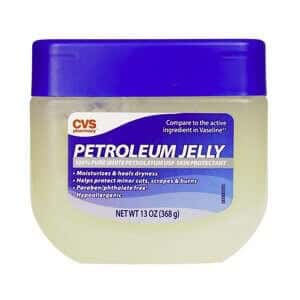
A decade ago we responded to a reader who put Vicks VapoRub in her nose before bed to control symptoms of post-nasal drip. We suggested that this might not be such a good idea and quoted the manufacturer: “For external use only…Do not use by mouth or in nostrils.”
We speculated that the camphor in Vicks might be the problem, but a pulmonary specialist corrected us and wrote that it was the petroleum jelly:
“As a pulmonary physician, I can explain the real reason there is a warning against putting Vicks VapoRub in the nostrils. It is not the camphor, but the petrolatum. Petroleum jelly or mineral oil can cause a chronic form of pneumonia when aspirated into the lungs.
“Most people inhale minute quantities of their nasal secretions, especially during sleep. Over time, the oil components of VapoRub or petroleum jelly can’t be cleared from the lungs. This can lead to cough, shortness of breath and reduced lung capacity.
“There are no effective treatment options for this type of pneumonia, so it is never advisable to place any oil-containing substances into the nostrils. Saline nasal spray is a much safer option for keeping the nostrils moist.”
A Controversy is Born
That warning from a pulmonologist set off a firestorm of controversy. We heard from readers who were really aggravated by this lung doctor’s caution:
“I am 71 years old and have been using Vicks in my nostrils at bedtime to ease breathing since my mother taught me from childhood. She lived to a ripe old age doing the same thing. Regardless of your warning, I am not about to stop now.”
Another was even more adamant:
“That’s stupid. I’ve been stuffing my nose with Vicks for years and I have never once come down with pneumonia. You can tell that to your know-it-all doctor. You shouldn’t buy into everything the doctors tell you.”
Over the last 10 years we have heard from many other people who regularly put Vicks or petroleum jelly in their noses and reported no problems. Others were totally freaked out because of worrisome lung symptoms:
“For years I relied on Vicks in my nose before bedtime and during the night. I could never figure out why I have a bad cough and can hardly breathe. Now I fear I have made the situation worse with the Vicks and I will never put it in my nose again.”
We also heard from others who experienced lung problems after using petroleum jelly or Vicks in their nostrils for long periods of time.
In 2009 researchers at Wake Forest University reported a case in which an 18-month-old child developed severe breathing problems after her grandparents put Vicks under her nostrils for a cold (Chest, Jan. 2009). This led to a study in ferrets that suggested Vicks VapoRub might increase inflammation in the airways.
March, 2015: Asthma Doctor vs. Dermatologist
Although we have warned about putting petrolatum or mineral oil in the nose for many years, some doctors never got the message. This led to this week’s newspaper column on this topic and a disagreement between specialists.
Q. I suffer from a terribly dry nose, especially at night. My dermatologist said to put petroleum jelly in my nose before bed but my asthma doctor says not to use it. He recommended saline spray instead. Who’s right?
A. We side with your asthma doctor. The label on Vicks VapoRub (which contains petrolatum or petroleum jelly) is clear: “Do not use in nostrils.”
Pulmonologists are concerned that petroleum jelly may end up in the lungs and cause irritation or chemical pneumonia. We think a saline spray that you could keep on your nightstand is a safer bet.
Share your own experience with Vicks or petroleum jelly below and please vote on this article at the top of the page. Here at The People’s Pharmacy we try to keep you informed about the pros and cons of drugs, dietary supplements and home remedies. Although we still think putting Vicks on the soles of the feet to calm a nighttime cough can be helpful, we continue to discourage people from putting Vicks VapoRub (or petroleum jelly) inside nostrils.

